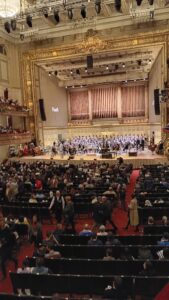The numbering of musical works
The other day while driving, I heard a familiar-sounding piano sonata on WCRB. It was one I’d heard before, in fact one I was familiar with. I could accurately anticipate the music, which was obviously Mozart’s, in some spots. But I couldn’t place the damn thing! When I reached my destination, I stayed in the parking lot and kept the radio on to the end. The announcer said only that it was Mozart’s “Piano Sonata No. 2.” This wasn’t very helpful, since there are different numberings in different editions.
The numbering of musical works is tricky in general. For many composers, there are generally accepted numbers, but Mozart’s sonatas aren’t the only case where there’s confusion. Schubert’s symphonies are usually numbered 1 to 9, even though No. 7 is just a sketch. The “Unfinished” is No.8 and the “Great C major” the 9th in this scheme. Some lists, though, have just eight symphonies. They make the “Unfinished” the seventh and the C major symphony the eighth, or vice versa.
(more…)
 Symphony Hall in Boston has been the site of a lot of great experiences for me. Some are faded in my memory. It’s likely that there’s one which, if you could remind me of it, would make me say, “Of course! Nothing could top that!” Right now, though, I can’t name one that was more breathtaking than last night’s presentation of Peer Gynt.
Symphony Hall in Boston has been the site of a lot of great experiences for me. Some are faded in my memory. It’s likely that there’s one which, if you could remind me of it, would make me say, “Of course! Nothing could top that!” Right now, though, I can’t name one that was more breathtaking than last night’s presentation of Peer Gynt. Here’s my latest for the Online Library of Liberty:
Here’s my latest for the Online Library of Liberty: